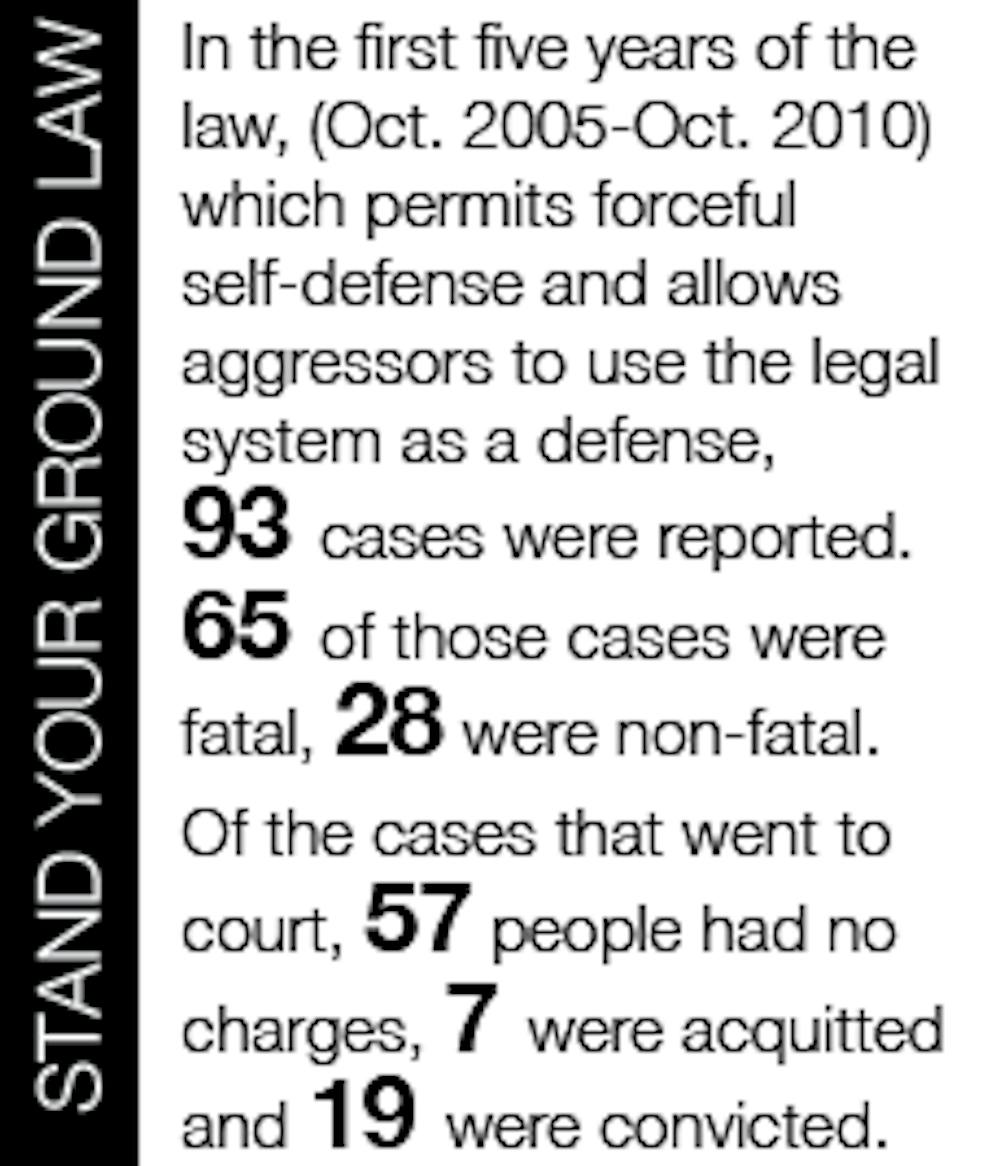The murder of 17-year-old Trayvon Martin continues to capture the media’s attention and the interest of Elon University’s crime studies club. The club’s co-presidents, sophomores Eden Etzel and Nia Duke, organized the March for Justice to illuminate fallacies they believe to be embedded in the justice system. Although, according to Etzel, those aware of the case typically reduce the injustice to a murder, those who participated in the march believe there are other issues involved in the incident.
The members of the crime studies club aim to illuminate fallacies in the criminal justice system and educate peers about past crimes and current conflicts. This case specifically attracted the club’s attention because of discussions regarding police negligence and apathy, Duke said.
[quote]Justice for me means that George Zimmerman is prosecuted and that people are aware of the type of event so it doesn’t continue to happen. -Darron Daniels Freshman[/quote]
Holding neon-colored signs, Elon students marched through Young Commons April 11 to bring attention to the national conflicts represented in the murder of Trayvon Martin.
“I want to be here to participate and show that it’s not just another murder,” said sophomore Kiley Brandt. “It’s something that reflects on our legal system and reflects on the way we view crimes.”
[box]View more photos in the March for Justice Photo Gallery.[/box]
With respect to the justice system, the two co-presidents acknowledged that the relationship between George Zimmerman and Martin revealed greater national concerns.
Etzel predicted that had the races been reversed, the aggressor would have been arrested immediately. Negligence in police behavior reduces minority groups’ confidence in law enforcement agencies, she said.
While other events on campus have discussed the commonalities between Martin and the nature of other recent conflicts, those conversations centered around the evil intent embedded in the crime rather than the pursuit for justice in the aftermath, according to Duke.
“Justice for me means that George Zimmerman is prosecuted and that people are aware of the type of event so it doesn’t continue to happen,” said freshman Darron Daniels, who participated in the march.
The national coverage attracted Daniels because he identified with Martin, he said. Participating in the march enabled him to represent and advocate for Martin, he said.
“As a Black, African-American male, hearing that this random kid was just one day walking home from a store and got shot hit me personally,” Daniels said. “I don’t look too far off from the him, so it kind of struck at me.”
Duke said she believes media coverage of previous cases involving Black individuals perpetrating crime in suburban neighborhoods perpetuates racial profiling and provided Zimmerman with an already crafted perception of the 17-year-old pedestrian.
“Our media plants messages in our head that says these are the types of people that plan these offenses that led Zimmerman to commit this offense,” she said.
 Furthermore, Etzel said she wanted to direct thought to the language of laws that enable aggressors to use the legal system as a defense. The Stand your Ground law permits a person to legally use force, including deadly force, as self-defense when there is a reasonable belief or threat of imminent bodily harm.
Furthermore, Etzel said she wanted to direct thought to the language of laws that enable aggressors to use the legal system as a defense. The Stand your Ground law permits a person to legally use force, including deadly force, as self-defense when there is a reasonable belief or threat of imminent bodily harm.
Although the facts are obscure, the club co-presidents said they are inclined to favor Martin based on police recordings and reports from eyewitnesses.
“What we heard on the police records is that the police instructed Zimmerman against following (Martin), and he was actually pursuing him,” Duke said. “He pursued him after the police officers told him not to, so that moved my understanding that Martin was walking around with a packet of skittles, and he was not a threat to the community.”


